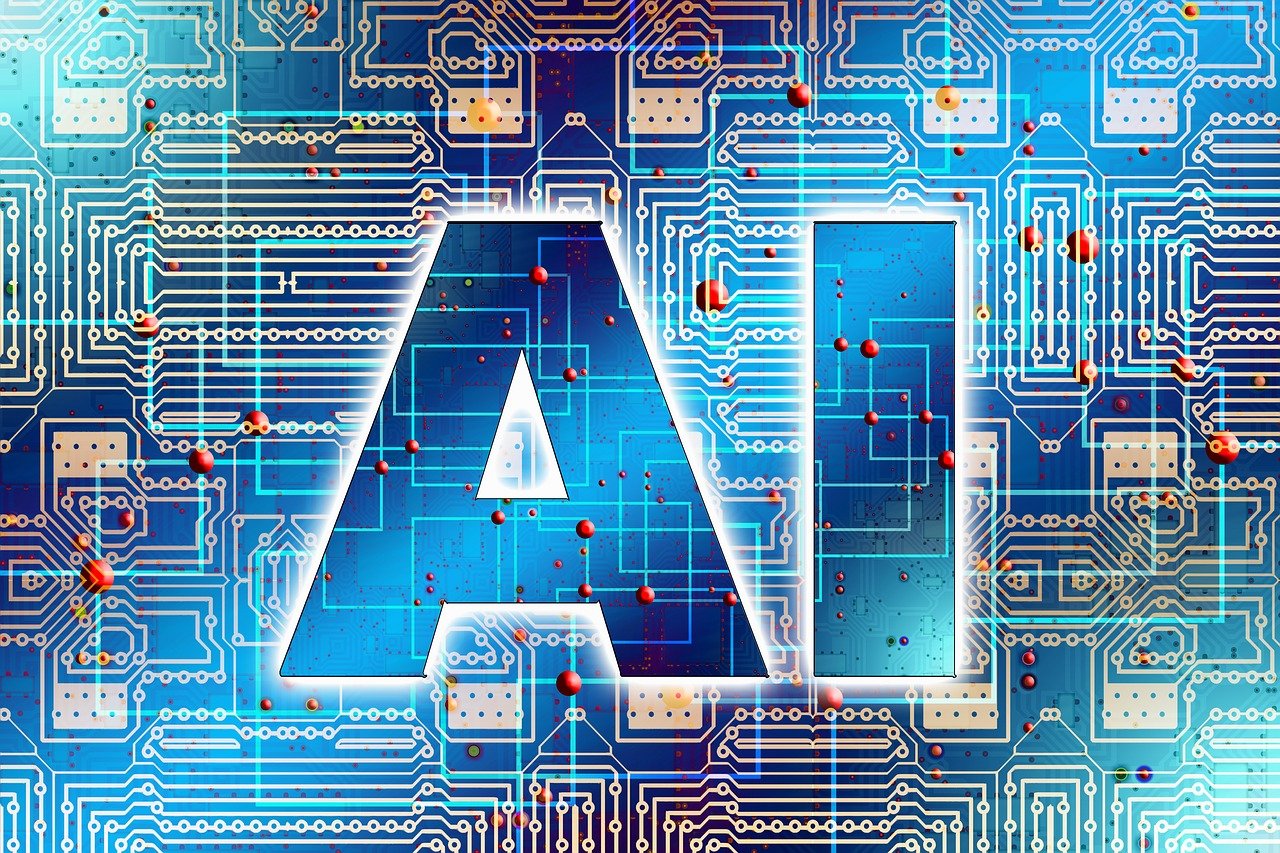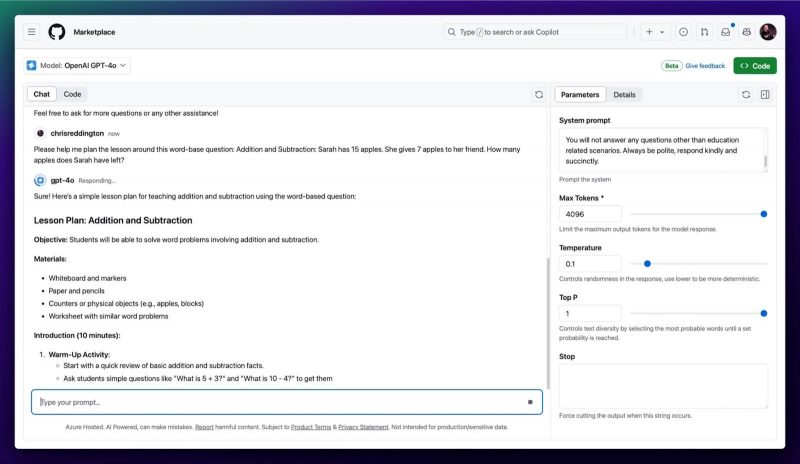 AI
AI
 AI
AI
 AI
AI
Microsoft Corp.’s developer platform GitHub Inc. today announced the limited public beta launch of GitHub Models, an interactive sandbox environment that will provide developers and engineers free access to industry-leading generative artificial intelligence models.
At launch, GitHub Models will provide access to popular models, big and small, including Meta Platforms Inc.’s Llama 3.1, OpenAI’s GPT-4o and GPT-4o mini, Cohere Inc.’s Command and Mistral AI’s Mistral Large 2. Developers will be able to deploy models via a built-in playground, test different prompts and model parameters and launch them into developer environments including GitHub Codespaces or Visual Studio Code.
“Increasingly, developers are building generative AI applications where the full stack contains backend and frontend code plus one or more models,” said GitHub Chief Executive Thomas Dohmke. “But a vast segment of developers still lack easy access to open and closed models. This changes today.”
For many developers, learning to code doesn’t happen just in the classroom, especially with rapidly evolving technologies – such as AI. It happens right in front of the computer screen with fingers on the keyboard trying to disentangle documentation and with the models themselves on a local machine or in the cloud.
Dohmke said that Models will bring AI large language models directly to developers, students, hobbyists, engineers and startups via an interactive playground and others via a few clicks and keystrokes. This will allow users to experiment, compare, test and deploy AI applications with ease right where they already manage their source code.

For example, a developer might be interested in discovering how a particular model might work with a new AI application they want to launch but they don’t know which model they want to use. Using Models, they can spin up GPT-4o to make use of its multimodal capabilities for ingesting audio, video and text in real time and compare its performance and cost per token to Mistral.
This also enables developers to experiment with different integration techniques and modes such as retrieval-augmented generation, which uses real-time trusted data to augment prompts to increase the accuracy of AI responses, or to test the efficacy of guardrails and other adjustments before the next phase of development.
All that can be done without ever needing to load up a model on a developer’s local machine, the company said. The local machine might not be able to handle larger models, or in the cloud where it would cost them money to experiment, but with the power of GitHub Codespaces, a secure cloud-based coding environment, developers can experiment with model inference before dropping it into a project. By applying sample code chosen from a variety of different languages and frameworks, developers can be ready to go by the time they’re prepared to deploy.
“Now with GitHub Models, more than 100 million developers can access and experiment with new AI models where they already manage their source code, issues, pull requests, workflows and repositories — directly on GitHub,” Dohmke added.
Finally, GitHub said, the process of deploying to the cloud is simple for developers and engineers. Taking a model from development in GitHub to Azure AI means just switching out a personal access token with an Azure subscription and credential.
“As an AI startup founder and open-source maintainer, GitHub Models enables my team to access and experiment with various LLMs in one place,” said FirstQuadrant co-founder Anand Chowdhary. “This streamlines our development and lowers the entry barrier for building AI apps.”
GitHub said in the months ahead, as the platform approaches general availability, the company plans to add more language, vision and other models to the platform. Currently, GitHub Models is in limited public beta mode and signups are available on the website.
Support our mission to keep content open and free by engaging with theCUBE community. Join theCUBE’s Alumni Trust Network, where technology leaders connect, share intelligence and create opportunities.
Founded by tech visionaries John Furrier and Dave Vellante, SiliconANGLE Media has built a dynamic ecosystem of industry-leading digital media brands that reach 15+ million elite tech professionals. Our new proprietary theCUBE AI Video Cloud is breaking ground in audience interaction, leveraging theCUBEai.com neural network to help technology companies make data-driven decisions and stay at the forefront of industry conversations.